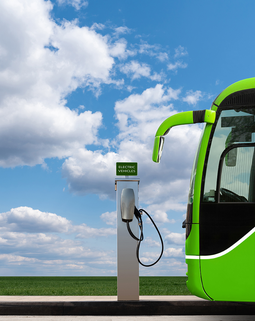Kenya has signed a significant deal with Toyota Tsusho Corporation to provide much-needed funding for the Thika-based Kenya Vehicle Manufacturers (KVM). This agreement, finalized during the G7 Session of Trade Ministers in Osaka, Japan, aims to revive the struggling KVM and enhance local automotive manufacturing capabilities.
Strategic Partnership for Economic Growth
The partnership was forged with the involvement of key officials from both Kenya and Japan. The Kenyan delegation, headed by Investments and Trade Cabinet Secretary Rebecca Miano, featured notable individuals including Industry Principal Secretary Dr. Juma Mukhwana and Kenya’s ambassador to Japan, Tabu Irina. On the Japanese side, the delegation was represented by Toyota Tsusho Corporation’s president and CEO, Ichiro Kashitani, and the COO of Toyota Tsusho Africa Division New Business Development, Kashumasa Kimura.
Reviving Kenya Vehicle Manufacturers (KVM)
The decision to involve Toyota Tsusho was driven by the financial struggles faced by KVM. With the National Treasury holding the largest stake at 35%, followed by CMC Motors and DT Dobie each with 32.5%, the agreement is seen as a lifeline for the Thika-based vehicle manufacturer. KVM assembles vehicles for various brands, including Nissan, Peugeot, and several commercial vehicle brands.
Government Support and Regulatory Framework
Kenya's Ministry of Investments and Trade has pledged to accelerate the completion of the automotive Bill and associated regulations in partnership with industry stakeholders. These regulations will encompass provisions for End-of-Life Vehicle (ELV) recycling, aiming to resolve the challenge posed by the accumulation of over 70,000 vehicles currently abandoned in junkyards across the country. By prioritizing the finalization of the automotive Bill and implementing comprehensive ELV recycling regulations, Kenya seeks to mitigate environmental hazards associated with abandoned vehicles while promoting sustainable waste management practices within the automotive sector. This collaborative effort underscores the government's commitment to fostering a conducive regulatory environment that promotes environmental sustainability, industry growth, and responsible automotive waste disposal practices in Kenya.
Encouraging Local Manufacturing and Sustainability
The Ministry has pledged to accelerate the completion of the automotive Bill and accompanying regulations in partnership with industry stakeholders. These regulations will address End-of-Life Vehicle (ELV) recycling for used cars and batteries, given the estimated 70,000 vehicles currently abandoned in junkyards after their useful life. Additionally, the Ministry voiced its commitment to enhancing the capabilities of local parts and components manufacturers to meet industry demands in technology and volume. They also promised to support incentives, such as reduced duties on electric and hybrid vehicles, to increase their affordability for the public.
Conclusion:
The deal between Kenya and Toyota Tsusho Corporation represents a significant step towards revitalizing the country's automotive industry. By addressing financial challenges, enhancing local manufacturing capabilities, and supporting sustainable practices, this collaboration aims to transform the Kenya Vehicle Manufacturers and contribute to the broader economic growth of the nation. The commitment to legislative support and incentives for electric and hybrid vehicles further underscores the potential for a more sustainable and prosperous future for Kenya's automotive sector.





